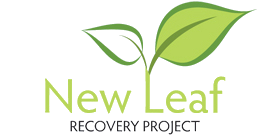Recreational Drug Use vs Addiction: The Key Differences

If you or someone you know is using drugs, you might be wondering what the differences are between recreational drug use and addiction. Whilst many people will try drugs at least once at some point in their lives, frequent recreational drug use can easily spiral into addiction if not kept in check.
In this blog, we’ll break down the key differences between recreational drug use and addiction, and what you can do if you’re concerned about yourself or a loved one.
Recreational Drug Use vs Addiction: Motivation
Let’s start with the basics. As the name suggests, recreational drug use is when drugs are used – or intended to be used – purely for recreational purposes, i.e. for casual fun, as a way to relax, or for social purposes.
People will often indulge in recreational drugs due to the latter, taking drugs because it’s what their friends are doing, and they want to fit in or simply try something new. This is why recreational drug use is popular amongst young people.
At this stage, the motivation for drug use is mainly grounded in curiosity and a desire for pleasure; the user is still fully in control of their behaviour, and they do not crave the substance when they are not taking it.
However, the difference between recreational drug use and addiction makes itself apparent when the user starts to lose control over their substance use. Here, the motivation to use drugs shifts from pleasure-seeking to that of physical need.
Addiction is a chronic condition. This means that the decision to use drugs ceases to be just a choice, and instead becomes a compulsion that the user feels powerless to resist. They will feel an overwhelming urge to use the substance just to feel okay, or to stave off withdrawal symptoms.
This is when drug use becomes highly dangerous. What started as mere experimentation or a way to have a bit of fun suddenly spirals into a battle to cope without the substance day-to-day. Here, professional help is usually required to help the user overcome addiction.
Seek Support with New Leaf Today
Control & Frequency
As hinted above, one of the key differences between recreational drug use and addiction is the level of control that an individual is able to display over their substance use. Recreational drug users will typically be able to say “no” and follow through on this decision. They won’t constantly be thinking about the next “hit”, or be planning their days around drug consumption.
Individuals with an addiction, however, have much less control over the decision on whether to take drugs or not. They will struggle to turn down the opportunity and say “no”, whether it’s an opportunity presented to themselves or by others. They will also be thinking about the drug far more frequently, and will be constantly tempted to indulge in its use.
At this point, the user’s control starts to slip, leading to a downward spiral of more drug consumption and even less control. Eventually, the individual will lose all sense of control, and instead, it will be the substance that is calling the shots.
Impact on Daily Life
When someone uses drugs recreationally, they’re typically still leading a “normal life”—they’re still working jobs, maintaining relationships, keeping up life responsibilities, etc.
There might be the occasional hangover or regret after a night out, but the drug is not having any real lasting impact on their day-to-day life, and they’re still able to carry on largely as normal.
With addiction, however, this isn’t the case. The substance will come to dominate the individual’s life, making general life responsibilities an impossible task.
They might regularly run late for work, fail to maintain relationships, get into financial trouble, or experience significant mental health issues.
This is because when addiction sets in, the drug starts to take priority over everything else, completely derailing normal day-to-day life. Drug addiction is, therefore, an all-encompassing condition; it invariably impacts everything from loved ones and careers to mental health and the very future of the addicted individual.
Consequences of Recreational Drug Use and Addiction
Despite the two having very clear differences along the lines of motivation, control, and impact on daily life, it’s important to recognise that recreational drug use isn’t without its risks. Even occasional drug use can result in poor decisions, accidents, and worsening mental health.
Addiction’s consequences are, of course, far more persistent and severe, but it’s important to acknowledge that both are still, nevertheless, plots along the same spectrum of drug use.
This is because recreational drug use is often a direct precursor to addiction. After all, no one sets out to become addicted, and so addictions’ origins actually lie in recreational drug use, where the user once believed they had everything under control.
What began as just a bit of fun or a way of socialising suddenly escalates into a problem that the user feels powerless to control. Most people who struggle with substance misuse may be in denial about this fact, struggling to accept that they have a problem.
They may still tell themselves that they’re in control of their decisions, or that the frequency of their use “really isn’t that bad”. But it’s this kind of avoidant attitude that can make addiction worse, giving it more time to grow and develop.
So, When Should You Be Concerned?
It’s easy to brush off warning signs when drug use doesn’t look like what you picture in your head as being “addiction.” But if you find yourself:
- Needing more of the substance to feel the same effects
- Thinking about using even when you’re not
- Using to cope with stress or to feel okay
- Struggling to say no when you want to
- Hiding your use from others
- Feeling anxious, irritable, or low when not using
Then it might be time to talk to someone. It’s important to speak out if you think you or a loved one is struggling with a drug problem, as the earlier it is caught, the higher the chances you have of making a swift recovery.
Recreational Drug Use Vs Addiction: Final Thoughts
Recreational drug use and addiction may seem worlds apart, but the harsh reality is that the gap between them can be closed very quickly. While the key differences are clear —motivation, control, and impact on daily life —the truth is that recreational use can very quickly cross into addiction, sometimes without the user even realising it.
The vast majority of people who end up with a drug addiction started out as casual users, indulging only occasionally. However, if left unchecked, this use can escalate from occasional to frequent, leading to dependency and addiction.
If you’ve noticed your use is becoming more frequent, or if you’re feeling worried about your level of self-control, don’t wait to seek help. It takes a great deal of courage, but reaching out and admitting you might have a problem is a sign of strength, not weakness.
The earlier you recognise the warning signs, the easier it is to turn things around. You don’t need to hit rock bottom to seek help. In fact, getting support early could be the very thing that prevents a serious addiction.
You’re Not Alone—Seek Support With New Leaf Recovery Today
At New Leaf Recovery, we offer non-judgmental, professional support for individuals at every stage of their journey. Our team understands how easy it is for recreational use to become something more serious, and we’re here to help you take back control.
From detox support and tailored therapy plans to aftercare and relapse prevention, we provide everything you need to start again and build a life free from addiction.
Receive a Free Call Back
"*" indicates required fields
A Complete Recovery Journey. From your initial enquiry, all the way through treatment and beyond with ongoing support, New Leaf Recovery are there to guide and support you.
New Leaf offers a complete journey of treatment, from initial detoxification and rehabilitation to ongoing support, including aftercare, family support, and beyond into long-term recovery.
Getting the right accommodation enables us to provide the right backdrop for our recovery methods. Any form of rehabilitation needs to happen in a safe, comfortable, secure and friendly environment.
Receive a Free Call Back
"*" indicates required fields










